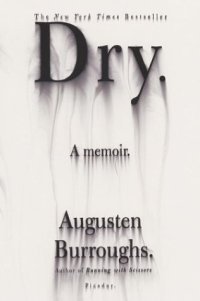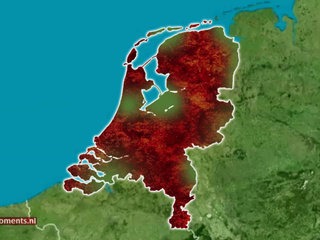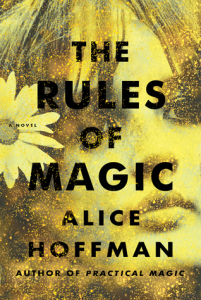 Tradescantia growing from a rock face at a bus-stop, Kotor Bay, 17 July
Tradescantia growing from a rock face at a bus-stop, Kotor Bay, 17 July
Loubyjo tweeted me yesterday to say ‘You can’t have started all these books at the same time!’
Quite right.
I’m just trying to catch up on my holiday backlog, now I’ve decided to list everything I read. It’s not going to be a very long list once I am back at work: I’m lucky to get through a book each month then – which is partly the reason for instituting Daily Reading Practice here. But now, on holiday? With nothing to do all day but swim and find food – sometimes I’m reading more than one book a day. So I want to get them on my ‘Just Started’ list help my annual record… Everything started will be listed, but only things I really want to recommend will be listed as ‘Just Finished’.
About two days ago I started Hester by Margaret Oliphant. Not finished yet but must start recommending.
I’ve read it before, maybe twice, but a long time ago, at least ten years, perhaps more like fifteen, twenty years. The edition I’m reading is the OUP World’s Classics – edited by Philip David and Brian Nellist. Excellent edition! I remember them working on it and the date inside is 2003. But I don’t remember rereading then… They were the early days of starting The Reader – everything is a blur.
Initially, I read Hester along with a lot of other work by Margaret Oliphant, while writing my Ph.D. – A Beleaguered City (1880) was a key text for me – something to come back to here another time. But the ‘Chronicles of Carlingford ‘ series – Salem Chapel, Mrs Marjoribanks also really enthralled me. How can there be such a great writer who hardly anyone has heard of?
And so to Hester. it’s about two women, rather alike, clever, proud, judgemental, certain of themselves, one a teenager and the other aged sixty-five… and how they do or don’t get on. It’s about being a powerful woman in a man’s world. Its a story set in and around a bank, and is partly about risk. Not many novels enter this territory! I’m absolutely loving rereading it. It has made me wonder why so few contemporary novels care about the complex inside of human experience. Are we done with that? Obviously not, if you read Home by Marilynne Robinson, or The Unnamed by Joshua Ferris. But they are rare beasts. Most novels don’t come close.
But back to Hester. You can read it online here.
Just one example for today. There has been an odd pause in a conversation, where Mr Rule, who has worked at the bank, seems to imply some problem, if Catherine Vernon were willing to look at it. But she is not, she passes the pause as if it were nothing. At Some level she can afford to. Nothing has hurt her for long while. She’s not looking for problems.
“We will not inquire too closely what he means,” said Catherine Vernon with a smile. “Anyhow it is very sweet to be able to retire while one has still command of all one’s faculties, and see the young ones come in. Of course one does not expect to live for ever. We are all in the Sunday period of our lives, all of us here.”
“Not I,” said the old clerk, “with respect be it spoken: I have had my Sunday and am ready to begin again, if there should be any need of me.”
“Which there is not, thank God,” she said heartily. And again there ensued that little pause. Was it possible she did not observe it? No one echoed the sentiment, no one even murmured the little nothings with which a stillness, which has a meaning, is generally filled up by some benevolent bystander. What did it mean? Hester asked herself. But Catherine took no notice. All had gone so well with her. She was not afraid of evil tidings. Her affection for the young men, her relations and successors, was calm enough to secure her from the anxious prescience of love. She took her life and all that was connected with her, with that serene and boundless faith which is the privilege of the untried soul. Catherine would have resented beyond everything else the imputation that her life was without experience. She had gone through a great deal, she thought. The evening long ago, when she had been told that the credit of the Vernons was at stake, and had roused herself to redeem it, had been the highest crisis and turning-point of existence to her. What had happened since had been little in comparison. She had not known what anxiety meant in the deepest sense of the word, and what had happened before was so long over, that, though she recollected every incident of that early time, it was apart from all her after-life, and never influenced her practical thoughts. She did not pay any attention to that pause which might have awakened her suspicions. There was no foundation in her for suspicion to build upon. She was so sure of all connected with her, and of herself, the first necessity of all.
This is a long hard look at a moment in a life where something happens that can easily be ignored, is most often ignored. But Margaret Oliphant – look her up, read the excellent Autobiography – had had a very hard life, had taken all the responsibility for supporting a family, knew what trouble was, knows that these small moments add up. The novel, in one sense, is about such moments.
So you don’t read a tiny pause on a conversation, so what ?
Hester, nineteen, is able to read it well enough to know it means something, though she can’t make out exactly what. Hester hasn’t the experience yet to understand the detail of such a moment. But she’s got a kind of survivor’s instinct about it. Catherine, for all her sixty-five years doesn’t have that. Prior hard experience might have taught Catherine to feel the little wobble in the moment, but ‘all had gone so well with her. She was not afraid of evil tidings.’ A kind of mental, emotional cushion, or is it a callous, grown by absence of hard knocks, wads her against potential damage. But we need to feel the real knocks, don’t we, to know where the obstacles and dangers are. Or instead of pain, Love might have given you ‘prescience’, but Catherine didn’t love, just lived a ‘calm affection’. So another potential danger-spotting faculty is cut-off. Catherine suffers ‘the privilege of the untried soul’ – a fine privilege when all is well, but a deep disability in hard times.
There’s a lot more of this – the novel is absolutely full of, it’s made from, such psychological observation. but I must stop writing now as I need to get back to my reading…
Share this:





